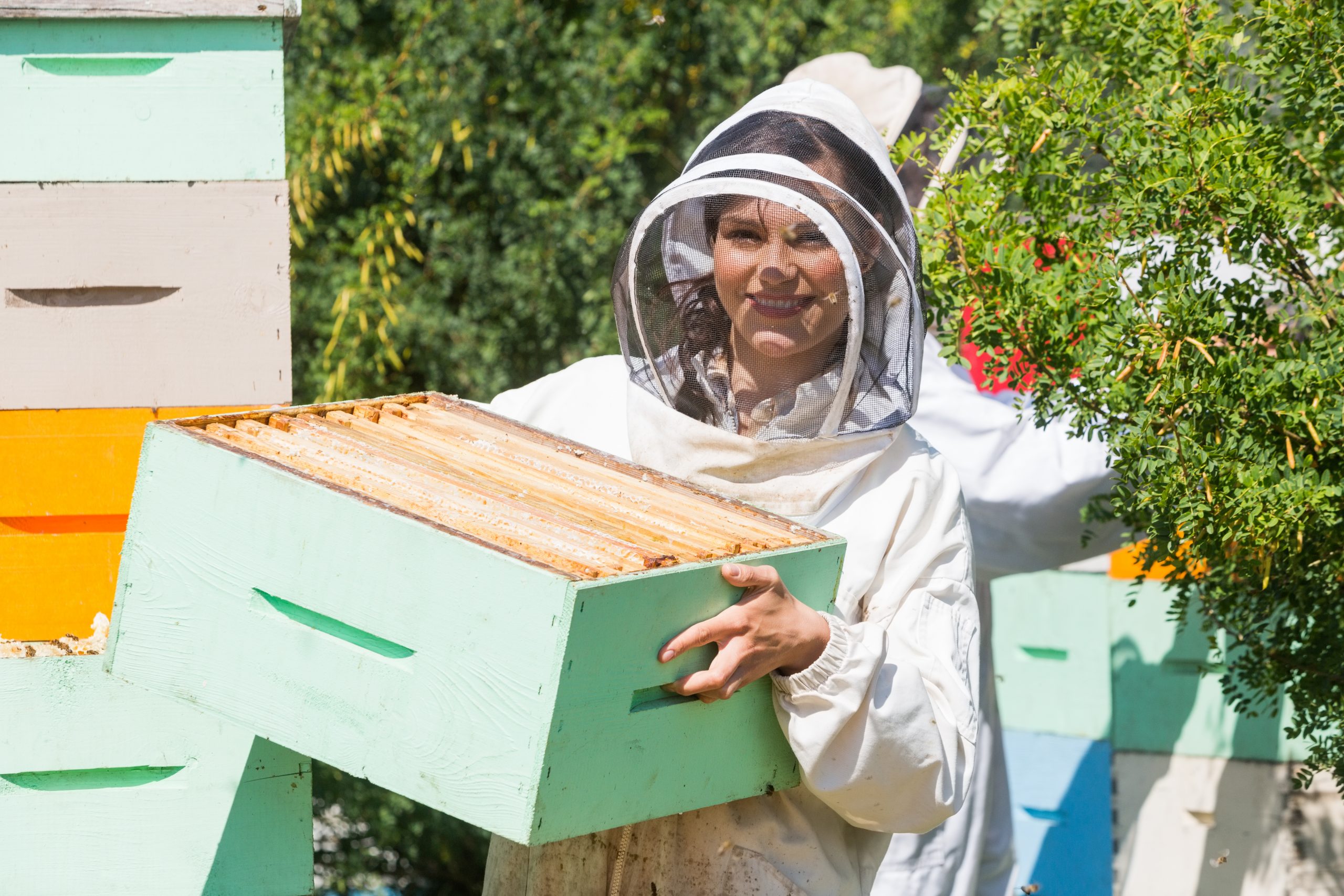Former CIA Operative Turns Texas Beekeeper
July 11, 2016
Bee Colony Collapse, Honey, Honey Bees
It takes a lot of work and dedication to be a beekeeper, especially in Texas—working in sweltering, summer temperatures in a protective beekeeping suit and lifting between 50-90 pounds of honeycomb all day. For former CIA operative turned beekeeper Tara Chapman, she’s proud to be the uncommon woman who works jobs not often filled by women as much as by men. Given she now works as a beekeeper in her hometown of Lubbock, TX, she’d say it’s the common thread that ties her dissimilar career choices together.
“I’ve traded in one suit of protective gear for another,” Chapman said, who’s gone from a Kevlar vest and a decade of intelligence work in Afghanistan and Pakistan to donning a beekeeping suit in the Texas heat, tending to a few dozen hives near Austin. As the first in her family to graduate from college, Chapman reportedly attended a school career fair and snuck her resume into a stack at the CIA’s table, afterward working for there for five years, mostly in Pakistan. “We were working in areas that weren’t very safe, doing things those countries wouldn’t want us to do,” she said, stipulating she eventually began working for a congressional commission investigating wartime contracts and then for the Special Inspector General on Afghanistan Reconstruction.
Having grown up the daughter of hardworking, blue-collar parents, Chapman began longing for Texas and started splitting time between Austin and Kabul. On a whim, she attended a beekeeping class about four years ago—and that’s where it all started. Chapman and a friend started keeping a pair of hives and offering beekeeping education, calling the business “Two Hives Honey,” but Chapman eventually admitted she required more experience before starting out on her own. After impressing a beekeeping business in Navasota (which included an introductory email stating how much weight she could deadlift), Chapman got a job, working six days a week with 12 hour days—in the sweltering Texas heat in a giant beekeeping suit, just another day at the office.
As someone who works with honeybees every day, Chapman has also become something of an activist, belonging to a group of farmers, environmentalists, and researchers pressing the EPA to regulate a class of pesticides (neonicotinoids) known to bring harm to honeybee populations. Through this group’s efforts, Austin’s Parks and Recreation Department announced it is ceasing use of neonicotinoids on its golf courses, given they can disrupt insects’ central nervous system and leave them paralyzed, likely contributing to the domestic and global collapse of honeybee populations.
Chapman is one of many fighting industry scientists who say these pesticides can increase overall crop yields, striking back with the assertion that using them is altering agriculture for the worst by “reducing diversity and pulverizing the soil.” And Chapman plans to continue that fight, just as she did as a CIA operative and now as a caretaker of honeybees in her home state of Texas.


.jpg)



